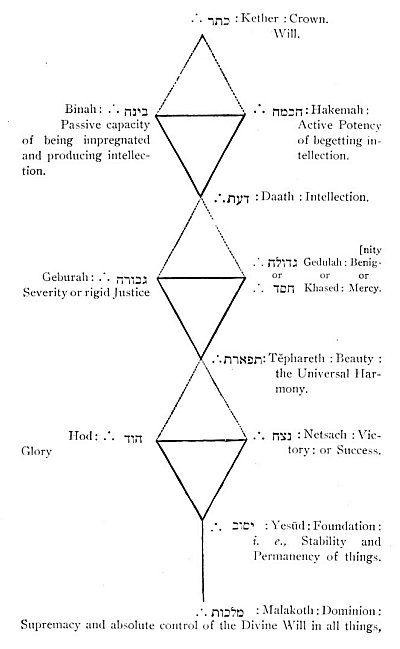The mystery of the world remains, but is sufficiently cleared up to inspire confidence. We are constrained to admit that if every man would but do the best in his power to do, and that which he knows he ought to do, we should need no better world than this. Man, surrounded by necessity, is free, not in a dogged determination of isolated will, because, though inevitably complying with nature’s laws, he is able, proportionately to his knowledge, to modify, in regard to himself, the conditions of their action, and so to preserve an average uniformity between their forces and his own.
Such are some of the conflicting opinions of antiquity; and we have to some extent presented to you a picture of the Ancient Thought. Faithful, as far as it goes, it exhibits to us Man’s Intellect ever struggling to pass beyond the narrow bounds of the circle in which its limited powers and its short vision confine it; and ever we find it travelling round the circle, like one lost in a
p. 697
wood, to meet the same unavoidable and insoluble difficulties. Science with her many instruments, Astronomy, particularly, with her telescope, Physics with the microscope, and Chemistry with its analyses and combinations, have greatly enlarged our ideas of the Deity, by discovering to us the vast extent of the Universe in both directions, its star-systems and its invisible swarms of minutest animal life; by acquainting us with the new and wonderful Force or Substance we call Electricity, apparently a link between Matter and Spirit: and still the Deity only becomes more incomprehensible to us than ever, and we find that in our speculations we but reproduce over and over again the Ancient Thought.
Where, then, amid all these conflicting opinions, is the True Word of a Mason?
My Brother, most of the questions which have thus tortured men’s minds, it is not within the reach and grasp of the Human Intellect to understand; but without understanding, as we have explained to you heretofore, we may and must believe.
The True Word of a Mason is to be found in the concealed and profound meaning of the Ineffable Name of Deity, communicated by God to Moses; and which meaning was long lost by the very precautions taken to conceal it. The true pronunciation of that name was in truth a secret, in which, however, was involved the far more profound secret of its meaning. In that meaning is included all the truth than can be known by us, in regard to the nature of God.
Long known as AL, AL SCHADAI, ALOHAYIM, and ADONAI; as the Chief or Commander of the Heavenly Armies; as the aggregate of the Forces [ALOHAYIM] of Nature; as the Mighty, the Victorious, the Rival of Bal and Osiris; as the Soul of Nature, Nature itself, a God that was but Man personified, a God with human passions, the God of the Heathen with but a mere change of name, He assumes, in His communications to Moses, the name ו ?Y?H?W?H [IHUH], and says to Him, ו ?A?H?Y?H ?A?Sה?R ?A?H?Y?H [AHIH ASHR AHIH], I AM WHAT I AM. Let us examine the esoteric or inner meaning of this Ineffable Name.
ו ?H?Y?H [HIH] is the imperfect tense of the verb To BE, of which ו ?Y?H?Y?H [IHIH] is the present; ו ?A?H?Y [AHI–ו ?A being the personal pronoun “I” affixed] the first person, by apocope; and, ו ?Y?H?Y [IHI] the third. The verb has the following forms: . . . Preterite, 3d person, masculine singular, ו ?H?Y?H [HIH], did exist, was; 3d person corn.
p. 698
plural, ו ?H?Y?W [HIU] . . . Present, 3d pers. masc. sing. ו ?Y?H?Y?H [IHIH], once ו ?Y?H?W?A [IHUA], by apocope, ו ?A?H?Y, ו ?Y?H?Y [AHI, IHI] . . Infinitive, ו ?H?Y?H, ו ?H?Y?W [HIH, HIU] . . . Imperative, 2d pers. masc. sing. ו ?H?Y?H [HIH], fem. ו ?H?W?Y [HUI] . . . Participle, masc. sing. ו ?H?W?H [HUH], ENS–EXISTING . . EXISTENCE.
The verb is never used, as the mere logical copula or connecting word, is, was, etc., is used with the Greeks, Latins, and ourselves. It always implies existence, actuality. The present form also includes the future sense, . . shall or may be or exist. And ו ?H?W?H and ו ?H?W?A [HUH and HUA] Chaldaic forms of the imperfect tense of the verb, are the same as the Hebrew ו ?H?W?H and ו ?H?Y?H [HUH and HIH], and mean was, existed, became.

Moe is the founder of GnosticWarrior.com. He is a father, husband, author, martial arts black belt, and an expert in Gnosticism, the occult, and esotericism.





